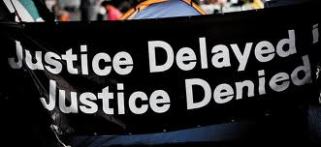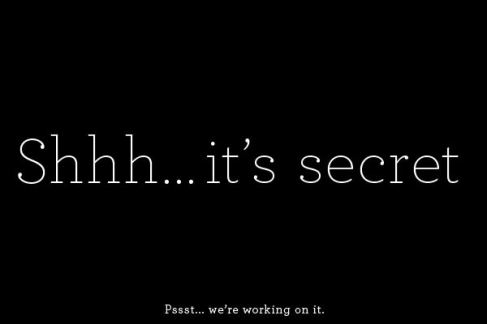‘JUSTICE DELAYED IS JUSTICE DENIED’
We are encircled by silhouettes of a woman, her blank body inscribed with a fight for justice. Buyisiwe is a survivor of sexual assault, but now she is a victim of a court system that continues to fail women.
There are thirty-one figures lining the walls, each cut-out a silent witness to five years of court delays, to a broader struggle for legal protection, safety and freedom. We’ve heard this before, but seeing it as a visual narrative transforms its message into a visceral experience. Suddenly this is not just the story of one woman; it is impossible not to reflect on the battles waged on our own bodies every day, on the lived realities of violence and control, of silencing and invisibility.
Being in the same space as the figures makes the horror of this collective story palpable. It is this power – the power of the visual, of reclaiming space – that we are thinking about and putting into practice today. The exclusion of lesbian and bisexual women, gender-nonconforming people and other marginalised communities from the public sphere is a significant manifestation of hetero-patriarchal control. But we can –and we must – fight back. By taking control of public spaces and forcing the broader community to engage with our demands, we are able to destabilise hegemonic discourses that continue to oppress us.
This morning we have the pleasure of working with our allies at the One in Nine Campaign, who will be teaching us about visual messaging and campaigning-building. Formed in 2006 as a response to the Jacob Zuma rape case, One in Nine quickly recognised the intense power of visual activism. After a series of successful actions, the organisation established its own art studio and soon after began sharing their art skills with others in the movement.
How does all of this relate to CAL’s sub-regional sexual rights advocacy plan? Developing and implementing a targeted advocacy plan, particularly one within a hostile regional context, requires very careful planning and conceptualisation. Of course, one cannot build a campaign without a demand, and one cannot decide a demand without a problem. Having thought critically over the last few days about our individual countries and then the region more broadly, delegates have identified the key challenge to which the campaign will speak: ‘the lack of freedom, self-ownership and control of our bodies’. Using the skills learnt in today’s art for activism workshop will be vital for formulating a central message around which to build the campaign.
Right now our members and partners are busy learning about three visual mediums: T-shirts, banners and film. All of these can be powerful tools for our activism, both within countries and regionally. Rather than describing the participant’s beautiful creations, we will be sharing some pictures of the finished products as well as the creative process.
Workshop coverage provided by Gay and Lesbian Memory in Action in collaboration with the Coalition of African Lesbians (CAL).

